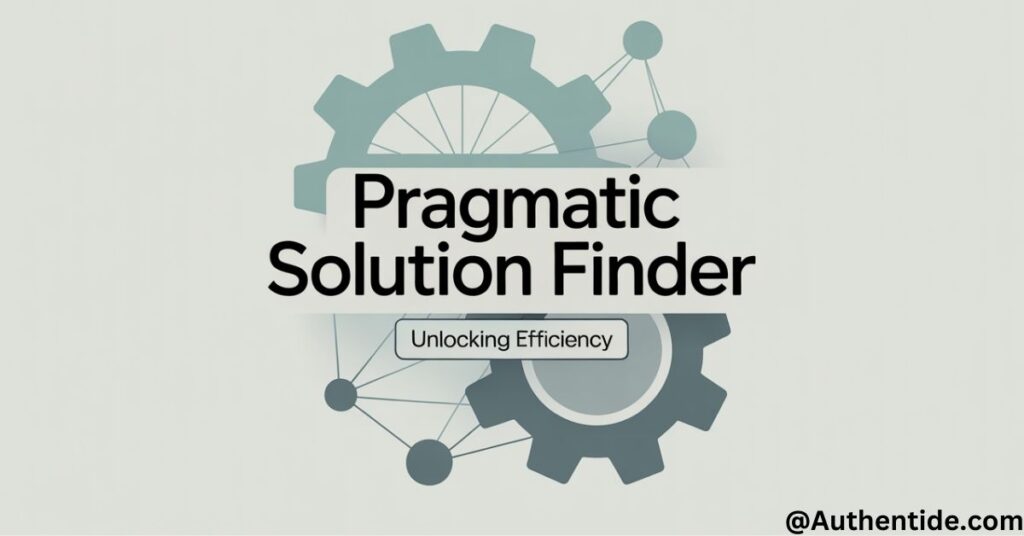Problem solving skills sit at the heart of nearly every successful career, yet simply writing “problem solver” on your resume won’t catch a hiring manager’s eye anymore. In today’s competitive job market, you need language that paints a vivid picture of how you tackle challenges and create solutions. The way you frame your problem-solving abilities can make the difference between landing in the interview pile or the rejection folder.
Think about it – when was the last time a job did not require solving some kind of problem? From engineering to customer service, marketing to manufacturing, employers crave candidates who can navigate complexities and emerge with effective solutions. But how do you convey this crucial skill set without falling back on the same tired phrases everyone else uses?
That’s exactly why I’ve created this comprehensive guide to help you stand out. We’ll explore 25 powerful alternatives to “problem solver” that will breathe new life into your resume, complete with real-world examples that showcase these skills in action. Whether you’re a seasoned professional or just starting your career journey, these fresh approaches will help you articulate your value in ways that resonate with employers across industries.
What to Say Instead of “Problem Solver”
- Analytical Thinker
- Solution-Oriented Professional
- Critical Thinker
- Innovative Mind
- Strategic Planner
- Effective Troubleshooter
- Creative Solution Developer
- Resourceful Professional
- Efficient Executor
- Adaptable Problem Navigator
- Insightful Problem Analyst
- Resolution-Focused Achiever
- Systematic Solution Architect
- Decisive Action-Taker
- Tactical Challenge Manager
- Conceptual Problem Framer
- Proactive Issue Preventer
- Pragmatic Solution Finder
- Intuitive Problem Detector
- Cross-Functional Solution Integrator
- Opportunity-Focused Transformer
- Root Cause Resolver
- Agile Solution Implementer
- Collaborative Problem Solver
- Results-Driven Problem Manager
is it Professional to Say: “Problem Solver”
Using “Problem Solver” on your resume isn’t necessarily unprofessional, but it’s become a generic term that fails to showcase your specific strengths. Hiring managers see this phrase repeatedly, causing it to lose impact. Instead, opt for more descriptive alternatives that highlight your unique problem-solving approach and provide concrete evidence of your capabilities. This precision demonstrates self-awareness and communication skills while giving employers clearer insight into your value.
Why Finding Another Word for Problem Solver Matters
Before diving into alternatives, let’s understand why this matters. Recruiters and hiring managers scan hundreds of resumes, and generic terms like “problem solver” have become so overused they’ve lost impact. When everyone claims to be a problem solver, the phrase becomes meaningless.
What employers really want to know is how you solve problems and what specific approaches you bring to the table. Using more precise, descriptive language helps you:
- Stand out among similarly qualified candidates
- Demonstrate self-awareness about your specific strengths
- Provide concrete evidence of your problem-solving style
- Match industry-specific keywords in applicant tracking systems
- Show thoughtfulness in your communication approach
Now, let’s explore powerful alternatives that will make your resume truly shine.
1. Analytical Thinker

Analytical thinking involves breaking down complex problems into manageable components, identifying patterns, and using data to inform decisions. This skill is particularly valued in fields requiring systematic evaluation of information.
Example: In an email to a potential employer: “As an analytical thinker, I reduced customer complaint resolution time by 37% by implementing a new categorization system that identified recurring issues and allowed for standardized responses to common problems.”
The logical thinker approach works particularly well in technical fields, scientific roles, and any position where methodical problem analysis drives decision-making. Companies seeking data-driven professionals will be drawn to candidates who emphasize their analytical mindset.
2. Solution-Oriented Professional
A solution-oriented professional focuses on outcomes rather than obstacles. Instead of dwelling on problems, you actively seek pathways to resolution and remain focused on achieving goals despite challenges.
Example: In a cover letter: “As a solution-oriented professional at XYZ Company, I faced a 30% supply chain disruption during the pandemic. Rather than focusing on the shortage, I identified three alternative suppliers within budget constraints and negotiated expedited delivery terms, ensuring zero production delays.”
This outcome-focused mindset is particularly valuable in roles requiring quick adaptation and positive approaches to obstacles. Employers in fast-paced environments appreciate candidates who maintain a proactive mindset when challenges arise.
3. Critical Thinker
Critical thinking involves objective analysis and evaluation of problems before forming judgments or solutions. It’s about questioning assumptions, considering alternative viewpoints, and making thoughtful decisions based on evidence.
Example: In a performance review response: “My critical thinking abilities were demonstrated when I questioned our team’s traditional approach to client onboarding. By challenging assumptions about what new clients needed, I developed a tiered onboarding system that reduced client confusion by 45% and increased first-month retention by 28%.”
As a rational thinker, you demonstrate the ability to set aside emotional reactions and evaluate situations objectively a valuable trait in roles requiring difficult decisions or when managing competing priorities and stakeholders.
4. Innovative Mind
An innovative mind approaches problems with creativity and imagination, developing novel solutions that others might not consider. This quality is particularly valuable when conventional approaches prove inadequate.
Example: From a project highlight: “When faced with budget constraints that prevented purchasing new equipment, my innovative mind led me to repurpose existing machinery with minor modifications, saving $87,000 while achieving 95% of the efficiency gains we sought with new equipment.”
This creative thinker approach shows potential employers you’re not limited by traditional problem-solving methods. Organizations facing disruption or seeking competitive advantages particularly value out-of-the-box thinking that challenges conventional wisdom.
5. Strategic Planner
A strategic planner looks beyond immediate problems to consider long-term implications and opportunities. They develop comprehensive approaches that solve current issues while positioning for future success.
Example: In a job application: “Acting as a strategic planner for our department’s technology transition, I developed a three-phase implementation that addressed immediate compatibility issues while creating a foundation for future integrations, ultimately saving 120 staff hours monthly in manual workarounds.”
The long-term thinker approach shows potential employers you can balance immediate needs with future considerations. This skill is particularly valuable in leadership roles or positions requiring significant resource allocation and organizational direction.
6. Effective Troubleshooter

An effective troubleshooter specializes in diagnosing and fixing specific issues, particularly in technical or operational contexts. You identify root causes and implement repairs efficiently.
Example: In a technical resume: “As the go-to troubleshooter for our manufacturing line, I reduced unplanned downtime by 24% through implementing a systematic diagnostic protocol that quickly identified electrical system failures before they caused full shutdowns.”
This problem fixer approach is highly valuable in technical roles, customer support positions, or any job where quickly resolving issues impacts operations or client satisfaction. Companies with complex systems particularly value skilled troubleshooters who can minimize disruptions.
7. Creative Solution Developer
A creative solution developer brings imaginative approaches to challenging problems, often finding unexpected resolutions that create new opportunities. This skill combines innovation with practical implementation.
Example: In a portfolio description: “When our team faced declining engagement in our email marketing campaigns, I functioned as a creative responder, developing an interactive quiz format that increased open rates by 47% and conversion by 23%, a solution now adopted across all product lines.”
The imaginative fixer approach works particularly well in marketing, product development, design roles, and other areas where fresh approaches generate competitive advantages. Employers seeking to innovate are drawn to candidates who demonstrate creative strategist abilities.
8. Resourceful Professional
A resourceful individual excels at finding solutions despite limited resources or information. You leverage what’s available and find creative ways to overcome constraints.
Example: In a performance achievement: “Working as a resourceful professional during our startup phase, I developed customer service protocols using free tools and volunteer training sessions that achieved a 92% satisfaction rate without adding headcount or technology costs.”
This adaptive professional approach is particularly valuable in entrepreneurial environments, nonprofit organizations, or any situation where maximizing limited resources is crucial. Companies undergoing transitions or budget constraints especially value resourcefulness.
9. Efficient Executor
An efficient executor doesn’t just solve problems—they implement solutions with minimal waste of time, resources or effort. This skill focuses on practical action and results.
Example: From a LinkedIn recommendation: “Sarah consistently demonstrates her abilities as an efficient executor of solutions, most notably when she streamlined our approval process from fourteen steps to seven, reducing turnaround time by 60% while increasing compliance rates.”
The task finisher mentality appeals particularly to organizations focused on operational excellence, productivity improvements, or situations requiring high output with constrained resources. Companies seeking performance drivers will be drawn to this characteristic.
10. Adaptable Problem Navigator
An adaptable problem navigator thrives in changing environments, adjusting approaches as new information emerges or circumstances shift. You remain flexible while maintaining focus on ultimate objectives.
Example: In a behavioral interview response: “When our client unexpectedly changed requirements mid-project, I demonstrated my skills as an adaptive innovator by quickly reconfiguring our deliverables timeline, negotiating a phased approach that satisfied their immediate needs while allowing our team reasonable adjustment time.”
This flexible thinker approach is particularly valuable in fast-changing industries, client-facing roles, or project-based work where requirements frequently evolve. Organizations experiencing transformation especially value professionals comfortable with ambiguity and change.
11. Insightful Problem Analyst
An insightful analyst sees beyond surface symptoms to identify underlying causes and patterns. This perspective allows for more comprehensive and lasting solutions.
Example: In a case study: “As the insightful analyst on our customer retention team, I discovered that seemingly random cancellations correlated strongly with subtle changes in usage patterns three weeks prior, allowing us to develop intervention protocols that reduced churn by 18%.”
The data interpreter approach is especially effective in roles requiring deep understanding of complex systems, consumer behavior, or business operations. Organizations seeking improved performance through better understanding of their challenges value this analytical depth.
12. Resolution-Focused Achiever

A resolute achiever combines determination with problem-solving skills, persisting until effective solutions are implemented and verified. You follow through on challenges others might abandon.
Example: From a recommendation letter: “Jamie demonstrates the qualities of a determined leader when facing obstacles, exemplified when our payment processing system failed during our busiest season. She worked through three consecutive nights to implement a temporary workaround while coordinating with vendors on permanent repairs.”
This focused executor mentality is particularly valuable in roles requiring persistence, in crisis management situations, or in environments where high stakes demand unwavering commitment to finding solutions. Organizations facing significant challenges value this determined approach.
13. Systematic Solution Architect
A systematic solution architect designs comprehensive approaches to problems, creating frameworks that address immediate issues while establishing processes to prevent recurrence.
Example: In a project summary: “Acting as a systematic approach specialist for our customer onboarding challenges, I developed a modular process framework that reduced errors by 42%, cut onboarding time by half, and created clear accountability metrics for each department involved.”
This methodical style works well in process-oriented environments, quality improvement roles, or positions requiring development of scalable systems. Organizations seeking to establish or improve operational foundations especially value systematic problem solvers.
14. Decisive Action-Taker
A decisive action-taker quickly evaluates situations and implements solutions without unnecessary delay. You balance thoughtful analysis with appropriate urgency.
Example: From a management assessment: “When faced with an unexpected server outage affecting 2,000 users, Carlos demonstrated his strength as a decision-maker by quickly evaluating recovery options, selecting the approach with minimal data risk, and clearly delegating emergency response tasks within 15 minutes of detection.”
This action taker approach is particularly valuable in crisis management roles, leadership positions, or any situation where timely responses impact outcomes. Organizations in time-sensitive industries especially value professionals who can move decisively when needed.
15. Tactical Challenge Manager
A tactical challenge manager excels at organizing resources and coordinating responses to immediate problems while maintaining operational continuity.
Example: In a project highlight: “Serving as the challenges navigator during our office relocation, I developed contingency plans for five critical systems, coordinated weekend transition teams, and implemented parallel operations that ensured zero downtime for client-facing services.”
This approach is particularly effective in operations roles, project management positions, or any situation requiring coordination of multiple elements under pressure. Organizations undergoing transitions value this ability to maintain functionality while addressing challenges.
16. Conceptual Problem Framer
A conceptual problem framer excels at defining and contextualizing challenges in ways that facilitate effective solutions. You see connections and implications others might miss.
Example: In a case study: “When our marketing campaigns showed inconsistent results across regions, I applied my skills as a logical reasoner to reframe the challenge from a messaging problem to a regional customization opportunity, leading to localized campaigns that improved engagement by 34%.”
This deep thinker approach works well in strategic roles, innovative environments, or situations requiring fundamental rethinking of approaches. Organizations facing complex or ambiguous challenges particularly value this conceptual clarity.
17. Proactive Issue Preventer
A proactive issue preventer identifies potential problems before they emerge and implements preventative measures. You address root causes rather than just responding to symptoms.
Example: In a performance review: “Acting as a proactive mindset champion, I identified potential inventory constraints six months before they would impact production by analyzing supplier delivery patterns, allowing us to adjust ordering timelines and prevent an estimated $340,000 in potential lost sales.”
This forward-thinking approach is particularly valuable in risk management roles, quality assurance positions, or operations management. Organizations seeking operational excellence value professionals who prevent problems rather than just solving them.
18. Pragmatic Solution Finder

A pragmatic solution finder balances idealism with practicality, finding workable solutions within real-world constraints. You focus on what’s achievable rather than perfect but unrealistic answers.
Example: In a client communication: “When budget limitations prevented our original recommendation, I demonstrated my abilities as a practical thinker by developing a phased implementation that delivered 80% of the benefits at 40% of the cost, with optional expansions as resources became available.”
This approach is particularly effective in consulting roles, client-facing positions, or resource-constrained environments. Organizations seeking implementable solutions rather than theoretical ideals value pragmatic problem solvers.
19. Intuitive Problem Detector
An intuitive problem detector senses issues before they become apparent through conventional metrics or reports. You notice subtle indicators and emerging patterns others might miss.
Example: From a colleague testimonial: “Ryan’s skills as an observation expert have been invaluable to our team. He identified potential quality issues with a vendor’s components based solely on subtle packaging changes, prompting testing that revealed specification drift before any failures occurred in production.”
This approach is particularly valuable in quality control roles, relationship management positions, or situations requiring early intervention. Organizations where small issues can escalate quickly especially value this perceptive quality.
20. Cross-Functional Solution Integrator
A cross-functional solution integrator solves problems by connecting knowledge, resources and perspectives across different departments or disciplines. You see how diverse elements can combine to create comprehensive solutions.
Example: In a project summary: “As the go-to person for our customer experience redesign, I coordinated input from sales, IT, operations and customer service to develop an integrated solution that addressed technical limitations, operational constraints and client needs simultaneously.”
This approach is particularly effective in matrix organizations, collaborative environments, or situations requiring alignment across different functional areas. Organizations with complex structures especially value professionals who can bridge departmental boundaries.
21. Opportunity-Focused Transformer
An opportunity-focused transformer reframes problems as opportunities for improvement or innovation. You see potential advantages in situations others perceive only as challenges.
Example: In a strategy document: “When competitors entered our market with lower-priced alternatives, I functioned as a vision-driven strategist, reframing the threat as an opportunity to differentiate through superior service, resulting in a new premium offering that actually increased our profit margins by 12%.”
This approach is particularly valuable in marketing roles, business development positions, or environments undergoing disruption. Organizations seeking competitive advantages value professionals who can transform threats into opportunities.
22. Root Cause Resolver
A root cause resolver looks beyond symptoms to identify and address fundamental issues. You avoid quick fixes in favor of comprehensive solutions that prevent recurrence.
Example: In a process improvement summary: “When our team faced recurring quality issues, I applied my strategic analyzer skills to implement a five-why methodology that traced sporadic failures to inconsistent supplier materials rather than production problems, permanently resolving issues that had persisted for over a year.”
This approach is particularly effective in quality management roles, process improvement positions, or environments where recurring problems create significant costs. Organizations committed to excellence value thorough problem solvers who address underlying causes.
23. Agile Solution Implementer
An agile solution implementer combines quick thinking with flexible execution, adjusting approaches as feedback and results emerge. You maintain momentum while refining solutions continuously.
Example: In a project debrief: “Acting as our team’s dynamic strategist, I implemented our customer feedback system using two-week iterations, incorporating user suggestions and usage data to refine features progressively, resulting in 87% user satisfaction compared to 62% for previous initiatives.”
This approach is particularly valuable in software development, product management roles, or rapidly evolving markets. Organizations embracing agile methodologies especially value professionals who can solve problems iteratively.
24. Collaborative Problem Solver
A collaborative problem solver leverages diverse perspectives and expertise to develop more comprehensive solutions. You facilitate group problem-solving processes that incorporate multiple viewpoints.
Example: From a team assessment: “Maria excels as a solution creator in group settings, demonstrated when she facilitated our pricing strategy sessions by creating structured activities that allowed marketing, finance and sales to contribute equally, resulting in a unified approach all departments supported enthusiastically.”
This approach is particularly effective in team leadership roles, cross-functional positions, or environments with diverse stakeholders. Organizations with collaborative cultures especially value professionals who can solve problems through inclusive processes.
25. Results-Driven Problem Manager

A results-driven problem manager maintains clear focus on desired outcomes throughout the problem-solving process. You measure success by results achieved rather than activities performed.
Example: In a performance summary: “As a consistent performer facing declining customer satisfaction scores, I established clear metrics for improvement, tested multiple service adjustments, and systematically implemented those generating positive responses, ultimately improving satisfaction rates from 72% to 91% over six months.”
This approach is particularly valuable in leadership roles, performance improvement positions, or environments with clear metrics. Organizations focused on measurable outcomes especially value problem solvers who deliver verifiable results.
Frequently Asked Question
How do you say problem solver on a resume?
Instead of simply writing “problem solver,” showcase this skill more effectively by using specific, descriptive alternatives that highlight your unique approach. Options like “Analytical Thinker,” “Solution-Oriented Professional,” or “Strategic Planner” convey your problem-solving abilities with greater precision. Always pair these terms with concrete examples of results you’ve achieved. For instance, “As an Innovative Mind, reduced production costs by 15% through creative process redesign.” This combination of targeted language and measurable outcomes demonstrates your problem-solving capabilities in action rather than just claiming them.
What is the professional name for a problem solver?
The professional name for a problem solver depends on context and industry, but common formal titles include “Solutions Architect,” “Continuous Improvement Specialist,” “Business Analyst,” “Operations Consultant,” or “Process Optimization Engineer.” In technical fields, you might see “Troubleshooting Specialist” or “Technical Solutions Engineer.” These titles reflect not just problem-solving abilities but also the systematic approaches used to identify, analyze, and resolve complex challenges in professional environments.
How do I say I have problem-solving skills?
To effectively communicate your problem-solving skills, be specific and provide evidence. Instead of simply stating “I have strong problem-solving skills,” try phrases like “I identify operational inefficiencies and implement targeted solutions” or “I analyze complex data sets to uncover underlying issues.” Back these claims with measurable results: “Reduced customer complaints by 27% by identifying and addressing recurring service bottlenecks.” Demonstrate your approach by mentioning methodologies you use, such as “Apply root cause analysis to prevent recurring issues rather than implementing temporary fixes.” This concrete language shows employers how you solve problems rather than just claiming that you can.
What is a synonym for problem solver on a resume?
Strong synonyms for “problem solver” on your resume include “Solutions Architect,” “Strategic Troubleshooter,” or “Analytical Innovator.” For more impact, try “Challenges Navigator,” “Resolution Specialist,” or “Critical Situation Manager.” Industry-specific options like “Process Optimization Specialist” or “Continuous Improvement Driver” can resonate with targeted employers. Each alternative conveys problem-solving abilities while adding nuance about your approach whether you excel at analytical thinking, creative solutions, or systematic processes. Choose terms that authentically reflect your strengths and match the language in job descriptions you’re targeting.
Conclusion
Elevating your resume beyond the basic “problem solver” label doesn’t just help you stand out—it demonstrates your self-awareness and communication skills. By choosing language that specifically reflects your unique problem-solving approach, you give potential employers insight into how you’ll tackle their challenges.
Remember that the most effective choice depends on your industry, the specific role, and your authentic strengths. Review job descriptions carefully to identify which problem-solving approaches align with employer needs, then select terms that honestly represent your capabilities.
When implementing these alternatives, pair them with specific examples that demonstrate these skills in action. Concrete results and measurable outcomes will always be more compelling than even the most sophisticated terminology.

Your go-to place for smart synonyms and celebrity updates. Muhammad Hassan Abid is dedicated to creating useful, engaging content that informs, inspires, and truly serves your curiosity

